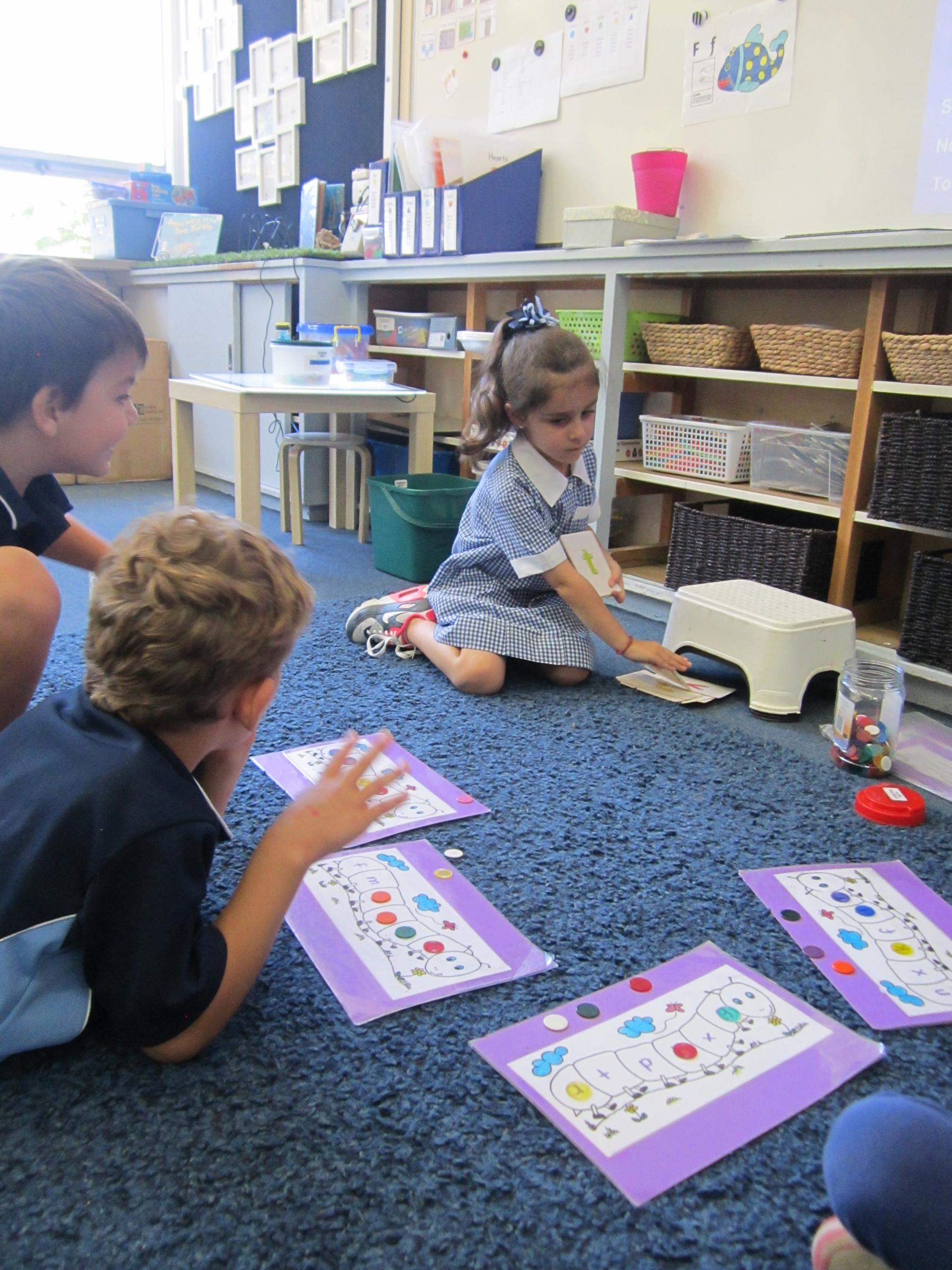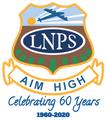English

Target Time
Our students will continue to participate in Target Time workshops held across all Reception classes each day, to ensure they have targeted support and learning to help them progress in critical areas of English. During Target Time we focus on the individual needs of each student. Each term we use a combination of observation, activities and assessments to determine our groups across all three classes. During term 3 we will be focusing on consolidating rhyme, initial sounds and blending and segmenting. The groups are fluid and teachers are monitoring students to ensure we are targeting each child’s needs throughout the term. Our goal is to ensure that all children have mastered the phonological awareness skills required for reading, spelling and writing.
Phonics
Children will continue to consolidate the 44 sounds of the English language throughout semester 2. We will continue to utilise the Jolly Phonics program to help children consolidate their blending skills and to be able to transfer these skills into their writing. Children are learning to recognise many high frequency words and will continue to bring home their Star Words to help them consolidate these essential words. Having these words in your child’s memory makes reading and writing that little bit easier.
Writing
Book Making will continue whereby children tell, draw and then write a text, focusing on sentence structure and using familiar vocabulary. We will also be introducing Book Creator on the Ipads. Our books will incorporate topics from other curriculum areas and students will have opportunities to write in different text types. Through explicit and guided writing sessions during term 3 we will focus on procedural texts and information report writing. During term 4 our focus shifts to writing an exposition text and introducing narrative writing.
Reading
We continue to read many different text types and genres during shared stories, exposing students to structures of narratives through ‘read aloud,’ role play and story boards. Teachers ‘think aloud’ to students; modelling how good readers use expression when reading and discuss the comprehension strategies readers use to understand what they have read. Teachers question and provide time for discussion, encouraging students to ‘notice’ and ‘wonder’ to ensure they understand that reading is an active process. Non-Fiction texts is also modelled and linked in with HASS to ensure our reading programs are comprehensive and balanced and that children understand that ‘we read different text differently’. Our "Author Focus" for term 3 is Pamela Allen and in term 4 we will focus on books by Alison Lester. It is vital that students read for enjoyment and we love sharing stories, the wonderings, extending and getting lost in our imagining and the fun we can create during story and reading time.
During our literacy sessions students participate in Guided Reading Groups. They work within a small group with their teachers to learn comprehension and reading strategies to help them decode and understand texts at their instructional reading level. During these times students are exposed to a broad range of text types to help them understand the purpose of reading . We model fluency and explicitly teach children how to read both fiction and non-fiction texts.
Handwriting
For the remainder of the year, Handwriting will continue to be a focus, incorporating weekly handwriting lessons into our programs using the ‘Writing Time’ resources. Letters are grouped according to how they are formed (usually their starting points) and provides a common language across all Reception classes and a fun and interactive way to teach handwriting. Children will be using dotted third paper and the 'pencil grip' will be explicitly taught to children to ensure they are gripping their pencil correctly. We will be sending home handwriting workbooks with each homework grid to ensure all students have further practice time. We will begin with "back flip letters" this term
Oral Language
Students are provided with many opportunities throughout the day to practice their oral language skills. From partner talk, small group and whole class discussions, to practicing the correct pronunciation of sounds and words. Reception classes are constantly using oral language to talk about share their learning and understandings. We will continue to further develop student’s bank of vocabulary through word investigations, word walls and our inquiries.
Literacy Rotations
Most days during our literacy sessions we have literacy rotations, which is a time when students practice their literacy skills. In groups they focus on a skill, which could be:
· Book making and Writing
· Guided Reading
· Creating a Word Wall
· Star Words
· Rhyme/Syllables/Blending and Segmenting
· Sentence Structure
· Phonics
· Speaking and Listening
We also incoportate some Apps into our literacy block. Here is a list of some that you might like to use at home:
-LetterSchool
-Forest Phonics
-Book Creator
-Fotobabble
